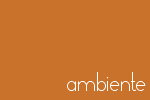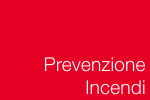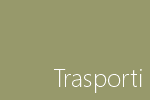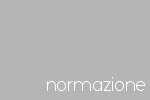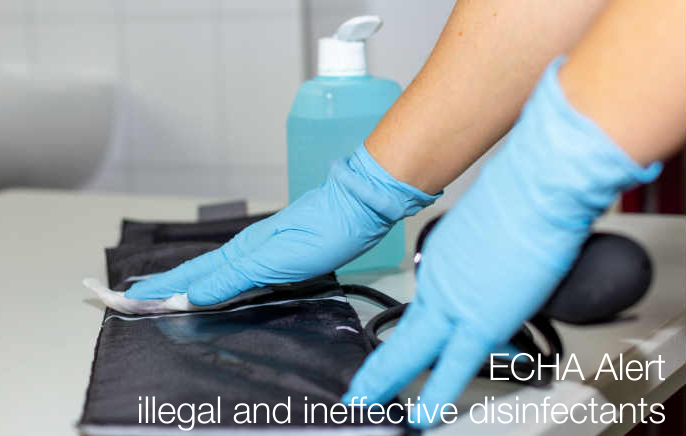| 1 x afterRenderRawModule mod_menu (Temi) (291.06KB) (16.18%) | 42.79ms |
| 1 x afterRenderRawModule mod_menu (Main Menu) (21.79KB) (10.4%) | 27.51ms |
| 1 x afterInitialise (3.44MB) (9.87%) | 26.11ms |
| 1 x afterRender (786.37KB) (9.76%) | 25.81ms |
| 1 x After Access::preloadPermissions (com_content) (16.77MB) (7.93%) | 20.97ms |
| 1 x afterRenderComponent com_content (81.23KB) (7.82%) | 20.67ms |
| 1 x Before Access::getAssetRules (id:8 name:com_content) (479.08KB) (6.83%) | 18.05ms |
| 1 x beforeRenderRawModule mod_login (Accedi all'area riservata) (1.75MB) (4.4%) | 11.63ms |
| 1 x afterRenderRawModule mod_articles_categories (Chemicals) (272.94KB) (3.19%) | 8.43ms |
| 1 x afterRoute (412.9KB) (2.69%) | 7.12ms |
| 1 x afterRenderRawModule mod_menu (Documenti Abbonati) (179.28KB) (2.3%) | 6.08ms |
| 1 x afterRenderRawModule mod_menu (Top Menu) (31.08KB) (1.95%) | 5.15ms |
| 1 x afterRenderRawModule mod_menu (Policies) (23.48KB) (1.51%) | 3.98ms |
| 1 x afterLoad (86.34KB) (1.48%) | 3.92ms |
| 1 x beforeRenderRawModule mod_menu (Main Menu) (33.91KB) (1.48%) | 3.90ms |
| 1 x afterRenderRawModule mod_menu (Marketing) (21.64KB) (1.32%) | 3.49ms |
| 1 x afterRenderRawModule mod_menu (Store) (17.13KB) (1.15%) | 3.04ms |
| 1 x afterRenderRawModule mod_menu (Social) (60.12KB) (1.11%) | 2.94ms |
| 1 x afterRenderRawModule mod_menu (Media) (14.41KB) (0.95%) | 2.51ms |
| 1 x afterRenderRawModule mod_login (Accedi all'area riservata) (67.24KB) (0.91%) | 2.40ms |
| 1 x afterRenderRawModule mod_menu (Info) (10.42KB) (0.79%) | 2.08ms |
| 1 x Before Access::getAssetRules (id:22773 name:com_content.article.10933) (514.65KB) (0.36%) | 942μs |
| 1 x Before Access::preloadComponents (all components) (34.22KB) (0.31%) | 832μs |
| 1 x beforeRenderComponent com_content (37.58KB) (0.29%) | 760μs |
| 1 x Before Access::getAssetRules (id:1000685 name:com_attachments) (10.76KB) (0.28%) | 735μs |
| 1 x afterRenderModule mod_menu (Temi) (22.67KB) (0.22%) | 592μs |
| 1 x afterRenderModule mod_menu (Main Menu) (11.27KB) (0.22%) | 581μs |
| 1 x afterRenderRawModule mod_custom (Certifico s.r.l.) (4.22KB) (0.21%) | 561μs |
| 1 x afterRenderModule mod_articles_categories (Chemicals) (10.5KB) (0.21%) | 556μs |
| 1 x afterRenderModule mod_custom (Titolo "Chemicals") (2.67KB) (0.21%) | 544μs |
| 1 x afterRenderModule mod_menu (Documenti Abbonati) (3.94KB) (0.2%) | 532μs |
| 1 x afterRenderModule mod_menu (Policies) (3.3KB) (0.18%) | 479μs |
| 1 x afterRenderModule mod_menu (Info) (3.05KB) (0.18%) | 475μs |
| 1 x afterRenderModule mod_menu (Media) (4.36KB) (0.18%) | 473μs |
| 1 x afterRenderModule mod_menu (Store) (3.3KB) (0.18%) | 470μs |
| 1 x beforeRenderRawModule mod_menu (Social) (39.6KB) (0.18%) | 470μs |
| 1 x afterRenderModule mod_custom (Certifico s.r.l.) (3.36KB) (0.18%) | 464μs |
| 1 x afterRenderModule mod_menu (Social) (3.92KB) (0.17%) | 462μs |
| 1 x afterRenderModule mod_menu (Marketing) (3.3KB) (0.17%) | 459μs |
| 1 x afterRenderModule mod_login (Accedi all'area riservata) (5.95KB) (0.12%) | 312μs |
| 1 x After Access::preloadComponents (all components) (115.88KB) (0.1%) | 271μs |
| 1 x afterDispatch (3.06KB) (0.08%) | 218μs |
| 1 x afterRenderModule mod_custom (Regolamento Macchine) (7.58KB) (0.08%) | 209μs |
| 1 x After Access::getAssetRules (id:22773 name:com_content.article.10933) (12.67KB) (0.05%) | 143μs |
| 1 x afterRenderRawModule mod_custom (Titolo "Chemicals") (992B) (0.05%) | 125μs |
| 1 x afterRenderRawModule mod_custom (Regolamento Macchine) (1.03KB) (0.04%) | 114μs |
| 1 x afterRenderRawModule mod_custom (Abbonamento Full) (912B) (0.04%) | 113μs |
| 1 x afterRenderRawModule mod_custom (D. Lgs. 81/2008 - TUSSL) (928B) (0.04%) | 101μs |
| 1 x afterRenderRawModule mod_custom (Store Certifico) (976B) (0.04%) | 100μs |
| 1 x afterRenderRawModule mod_custom (Abbonamento Full Plus) (912B) (0.04%) | 97μs |
| 1 x afterRenderRawModule mod_custom (Food Safety book) (1.02KB) (0.04%) | 96μs |
| 1 x afterRenderRawModule mod_custom (Codice Prevenzione Incendi | RTO II) (928B) (0.04%) | 94μs |
| 1 x afterRenderRawModule mod_custom (Codice Unico Sicurezza) (928B) (0.04%) | 93μs |
| 1 x afterRenderRawModule mod_custom (MEPA) (960B) (0.04%) | 93μs |
| 1 x afterRenderRawModule mod_custom (DM 21 Marzo 1973 | MOCA IT) (1.03KB) (0.03%) | 92μs |
| 1 x afterRenderRawModule mod_custom (TUSSL / Link) (976B) (0.03%) | 91μs |
| 1 x afterRenderRawModule mod_custom (CEM4 || Ultimo aggiornamento) (1.03KB) (0.03%) | 91μs |
| 1 x afterRenderRawModule mod_custom (Direttiva macchine e norme armonizzate) (1.05KB) (0.03%) | 91μs |
| 1 x afterRenderRawModule mod_custom (TUA | Testo Unico Ambiente) (928B) (0.03%) | 90μs |
| 1 x afterRenderRawModule mod_custom (D. Lgs. 101/2020 - Protezione esposizione radiazioni ionizzanti) (960B) (0.03%) | 90μs |
| 1 x afterRenderRawModule mod_custom (Certifico ADR) (1.02KB) (0.03%) | 88μs |
| 1 x afterRenderModule mod_menu (Top Menu) (4.11KB) (0.03%) | 86μs |
| 1 x afterRenderModule mod_custom (Abbonamento Full Plus) (15.14KB) (0.03%) | 85μs |
| 1 x afterRenderModule mod_custom (Food Safety book) (4.02KB) (0.03%) | 85μs |
| 1 x afterRenderModule mod_custom (MOCA - GMP | Consolidato) (4.02KB) (0.03%) | 85μs |
| 1 x afterRenderModule mod_custom (Codice Prevenzione Incendi | RTO II) (4.16KB) (0.03%) | 83μs |
| 1 x afterRenderRawModule mod_custom (Glossario Certifico HSE) (1.03KB) (0.03%) | 83μs |
| 1 x afterRenderRawModule mod_custom (D. Lgs. 196/2003 - Codice protezione dati personali | GDPR) (960B) (0.03%) | 83μs |
| 1 x afterRenderModule mod_custom (D. Lgs. 231/2001 - Responsabilità amministrativa enti) (4.42KB) (0.03%) | 82μs |
| 1 x afterRenderRawModule mod_custom (D. Lgs. 231/2001 - Responsabilità amministrativa enti) (960B) (0.03%) | 81μs |
| 1 x afterRenderRawModule mod_custom (MOCA - GMP | Consolidato) (1.03KB) (0.03%) | 81μs |
| 1 x afterRenderModule mod_custom (TUSSL / Link) (3.64KB) (0.03%) | 80μs |
| 1 x afterRenderModule mod_custom (D. Lgs. 81/2008 - TUSSL) (4.02KB) (0.03%) | 79μs |
| 1 x afterRenderModule mod_custom (Codice Unico Sicurezza) (4.02KB) (0.03%) | 76μs |
| 1 x afterRenderModule mod_custom (TUA | Testo Unico Ambiente) (4.03KB) (0.03%) | 75μs |
| 1 x afterRenderModule mod_custom (MEPA) (3.75KB) (0.03%) | 75μs |
| 1 x afterRenderModule mod_custom (Store Certifico) (3.58KB) (0.03%) | 74μs |
| 1 x afterRenderModule mod_custom (CEM4 || Ultimo aggiornamento) (3.91KB) (0.03%) | 73μs |
| 1 x afterRenderModule mod_custom (DM 21 Marzo 1973 | MOCA IT) (4.03KB) (0.03%) | 73μs |
| 1 x afterRenderModule mod_custom (Direttiva macchine e norme armonizzate) (4.16KB) (0.03%) | 72μs |
| 1 x afterRenderModule mod_custom (Abbonamento Full) (4.89KB) (0.03%) | 72μs |
| 1 x afterRenderModule mod_custom (D. Lgs. 101/2020 - Protezione esposizione radiazioni ionizzanti) (4.44KB) (0.03%) | 71μs |
| 1 x afterRenderModule mod_custom (Certifico ADR) (3.89KB) (0.03%) | 69μs |
| 1 x afterRenderModule mod_custom (Glossario Certifico HSE) (3.77KB) (0.03%) | 67μs |
| 1 x afterRenderModule mod_custom (D. Lgs. 196/2003 - Codice protezione dati personali | GDPR) (4.44KB) (0.03%) | 67μs |
| 1 x beforeRenderRawModule mod_menu (Top Menu) (2.56KB) (0.02%) | 61μs |
| 1 x beforeRenderRawModule mod_custom (Titolo "Chemicals") (2.2KB) (0.01%) | 32μs |
| 1 x beforeRenderRawModule mod_menu (Temi) (904B) (0.01%) | 30μs |
| 1 x After Access::getAssetRules (id:8 name:com_content) (11.51KB) (0.01%) | 28μs |
| 1 x beforeRenderRawModule mod_menu (Policies) (616B) (0.01%) | 27μs |
| 1 x beforeRenderRawModule mod_menu (Info) (440B) (0.01%) | 24μs |
| 1 x beforeRenderRawModule mod_custom (Certifico s.r.l.) (2.16KB) (0.01%) | 23μs |
| 1 x beforeRenderRawModule mod_menu (Documenti Abbonati) (1.96KB) (0.01%) | 22μs |
| 1 x After Access::getAssetRules (id:1000685 name:com_attachments) (10.59KB) (0.01%) | 20μs |
| 1 x beforeRenderRawModule mod_custom (Regolamento Macchine) (9.7KB) (0%) | 12μs |
| 1 x Before Access::getAssetRules (id:1 name:root.1) (760B) (0%) | 11μs |
| 1 x beforeRenderRawModule mod_articles_categories (Chemicals) (2.36KB) (0%) | 10μs |
| 1 x beforeRenderRawModule mod_custom (Codice Prevenzione Incendi | RTO II) (2.25KB) (0%) | 10μs |
| 1 x beforeRenderRawModule mod_custom (TUSSL / Link) (1.48KB) (0%) | 10μs |
| 1 x beforeRenderRawModule mod_custom (DM 21 Marzo 1973 | MOCA IT) (1.63KB) (0%) | 10μs |
| 1 x beforeRenderRawModule mod_menu (Media) (912B) (0%) | 9μs |
| 1 x beforeRenderRawModule mod_custom (D. Lgs. 81/2008 - TUSSL) (9.5KB) (0%) | 9μs |
| 1 x beforeRenderRawModule mod_custom (Certifico ADR) (2.77KB) (0%) | 9μs |
| 1 x beforeRenderRawModule mod_menu (Store) (912B) (0%) | 8μs |
| 1 x beforeRenderRawModule mod_menu (Marketing) (896B) (0%) | 8μs |
| 1 x beforeRenderRawModule mod_custom (Glossario Certifico HSE) (2.38KB) (0%) | 7μs |
| 1 x beforeRenderRawModule mod_custom (Direttiva macchine e norme armonizzate) (1.27KB) (0%) | 7μs |
| 1 x beforeRenderRawModule mod_custom (Store Certifico) (3.27KB) (0%) | 7μs |
| 1 x beforeRenderRawModule mod_custom (MEPA) (2.05KB) (0%) | 7μs |
| 1 x beforeRenderRawModule mod_custom (TUA | Testo Unico Ambiente) (2.38KB) (0%) | 6μs |
| 1 x beforeRenderRawModule mod_custom (D. Lgs. 196/2003 - Codice protezione dati personali | GDPR) (2.22KB) (0%) | 6μs |
| 1 x beforeRenderRawModule mod_custom (CEM4 || Ultimo aggiornamento) (2KB) (0%) | 6μs |
| 1 x beforeRenderRawModule mod_custom (MOCA - GMP | Consolidato) (2.5KB) (0%) | 6μs |
| 1 x beforeRenderRawModule mod_custom (Codice Unico Sicurezza) (2.25KB) (0%) | 6μs |
| 1 x beforeRenderRawModule mod_custom (Abbonamento Full) (2.39KB) (0%) | 6μs |
| 1 x beforeRenderRawModule mod_custom (Food Safety book) (2.52KB) (0%) | 6μs |
| 1 x Before Access::preloadPermissions (com_content) (1.51KB) (0%) | 5μs |
| 1 x beforeRenderRawModule mod_custom (D. Lgs. 231/2001 - Responsabilità amministrativa enti) (2.09KB) (0%) | 5μs |
| 1 x beforeRenderRawModule mod_custom (D. Lgs. 101/2020 - Protezione esposizione radiazioni ionizzanti) (2.72KB) (0%) | 5μs |
| 1 x beforeRenderRawModule mod_custom (Abbonamento Full Plus) (2.38KB) (0%) | 5μs |
| 1 x beforeRenderModule mod_menu (Main Menu) (704B) (0%) | 4μs |
| 1 x beforeRenderModule mod_login (Accedi all'area riservata) (736B) (0%) | 3μs |
| 1 x beforeRenderModule mod_menu (Top Menu) (704B) (0%) | 3μs |
| 1 x beforeRenderModule mod_articles_categories (Chemicals) (704B) (0%) | 3μs |
| 1 x beforeRenderModule mod_menu (Temi) (704B) (0%) | 3μs |
| 1 x After Access::getAssetRules (id:1 name:root.1) (1.28KB) (0%) | 2μs |
| 1 x beforeRenderModule mod_menu (Social) (704B) (0%) | 2μs |
| 1 x beforeRenderModule mod_menu (Media) (704B) (0%) | 2μs |
| 1 x beforeRenderModule mod_menu (Marketing) (704B) (0%) | 2μs |
| 1 x beforeRenderModule mod_custom (Certifico s.r.l.) (720B) (0%) | 2μs |
| 1 x beforeRenderModule mod_menu (Documenti Abbonati) (720B) (0%) | 2μs |
| 1 x beforeRenderModule mod_custom (D. Lgs. 101/2020 - Protezione esposizione radiazioni ionizzanti) (768B) (0%) | 2μs |
| 1 x beforeRenderModule mod_custom (MEPA) (704B) (0%) | 2μs |
| 1 x beforeRenderModule mod_menu (Policies) (704B) (0%) | 2μs |
| 1 x beforeRenderModule mod_menu (Store) (704B) (0%) | 2μs |
| 1 x beforeRenderModule mod_menu (Info) (704B) (0%) | 2μs |
| 1 x beforeRenderModule mod_custom (Codice Prevenzione Incendi | RTO II) (736B) (0%) | 2μs |
| 1 x beforeRenderModule mod_custom (TUA | Testo Unico Ambiente) (736B) (0%) | 2μs |
| 1 x beforeRenderModule mod_custom (CEM4 || Ultimo aggiornamento) (736B) (0%) | 2μs |
| 1 x beforeRenderModule mod_custom (Direttiva macchine e norme armonizzate) (736B) (0%) | 2μs |
| 1 x beforeRenderModule mod_custom (Certifico ADR) (720B) (0%) | 2μs |
| 1 x beforeRenderModule mod_custom (Abbonamento Full Plus) (720B) (0%) | 2μs |
| 1 x beforeRenderModule mod_custom (Food Safety book) (720B) (0%) | 2μs |
| 1 x beforeRenderModule mod_custom (Titolo "Chemicals") (720B) (0%) | 2μs |
| 1 x beforeRenderModule mod_custom (MOCA - GMP | Consolidato) (736B) (0%) | 1μs |
| 1 x beforeRenderModule mod_custom (Codice Unico Sicurezza) (720B) (0%) | 1μs |
| 1 x beforeRenderModule mod_custom (Store Certifico) (720B) (0%) | 1μs |
| 1 x beforeRenderModule mod_custom (Regolamento Macchine) (720B) (0%) | 1μs |
| 1 x beforeRenderModule mod_custom (D. Lgs. 81/2008 - TUSSL) (720B) (0%) | 1μs |
| 1 x beforeRenderModule mod_custom (TUSSL / Link) (720B) (0%) | 1μs |
| 1 x beforeRenderModule mod_custom (Glossario Certifico HSE) (720B) (0%) | 1μs |
| 1 x beforeRenderModule mod_custom (D. Lgs. 231/2001 - Responsabilità amministrativa enti) (752B) (0%) | 1μs |
| 1 x beforeRenderModule mod_custom (D. Lgs. 196/2003 - Codice protezione dati personali | GDPR) (768B) (0%) | 1μs |
| 1 x beforeRenderModule mod_custom (DM 21 Marzo 1973 | MOCA IT) (736B) (0%) | 1μs |
| 1 x beforeRenderModule mod_custom (Abbonamento Full) (720B) (0%) | 1μs |




